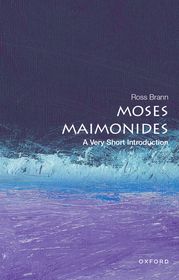
-
10% KEDVEZMÉNY?
- A kedvezmény csak az 'Értesítés a kedvenc témákról' hírlevelünk címzettjeinek rendeléseire érvényes.
- Kiadói listaár GBP 9.99
-
4 772 Ft (4 545 Ft + 5% áfa)
Az ár azért becsült, mert a rendelés pillanatában nem lehet pontosan tudni, hogy a beérkezéskor milyen lesz a forint árfolyama az adott termék eredeti devizájához képest. Ha a forint romlana, kissé többet, ha javulna, kissé kevesebbet kell majd fizetnie.
- Kedvezmény(ek) 10% (cc. 477 Ft off)
- Kedvezményes ár 4 295 Ft (4 091 Ft + 5% áfa)
Iratkozzon fel most és részesüljön kedvezőbb árainkból!
Feliratkozom
4 772 Ft

Beszerezhetőség
Még nem jelent meg, de rendelhető. A megjelenéstől számított néhány héten belül megérkezik.
Why don't you give exact delivery time?
A beszerzés időigényét az eddigi tapasztalatokra alapozva adjuk meg. Azért becsült, mert a terméket külföldről hozzuk be, így a kiadó kiszolgálásának pillanatnyi gyorsaságától is függ. A megadottnál gyorsabb és lassabb szállítás is elképzelhető, de mindent megteszünk, hogy Ön a lehető leghamarabb jusson hozzá a termékhez.
A termék adatai:
- Kiadó OUP USA
- Megjelenés dátuma 2025. október 9.
- ISBN 9780197536988
- Kötéstípus Puhakötés
- Terjedelem168 oldal
- Méret 174x116x10 mm
- Súly 113 g
- Nyelv angol
- Illusztrációk 10 b/w illustrations 700
Kategóriák
Rövid leírás:
Moses Maimonides, a scientist, physician, philosopher, rabbinic scholar, and communal leader, was perhaps the most important Jewish figure of the pre-modern age.
In this accessible introduction, Ross Brann presents a holistic picture of this towering figure, the author of The Guide for the Perplexed, the Commentary on the Mishnah, and the seminal Mishneh Torah (Code of Jewish Law), in which he reorganized and systematized all of rabbinic law in its entirety. Key to engaging Maimonides on his own terms is understanding that he applied a rationalist's regimen characteristic of his scientific research and practice of medicine to all his life's work: he observed and studied a problem, diagnosed it, and then prescribed a remedy for it whether the concern was physical, metaphysical, spiritual, intellectual, or social in nature.
Hosszú leírás:
Moses Maimonides, a scientist, physician, philosopher, rabbinic scholar, and communal leader, was perhaps the most imposing Jewish figure of the pre-modern age. Yet, more than eight centuries after his death, the meaning of his life and his work remains contested.
This Very Short Introduction to Moses Maimonides surveys Maimonides' many intellectual, literary, and professional ventures. Born in Islamic Cordoba, he ultimately settled in Cairo, where he served as jurist and civic leader and a highly esteemed physician with responsibilities at the Fatimid and Ayyubid courts, even as he deepened his philosophical-theological pursuits. He moved seamlessly between specialized, private, and public Jewish and Muslim spheres.
Indeed, his written works traverse multiple disciplines, employ several literary genres, and address various elite and popular audiences. Beginning with his Commentary on the Mishnah and culminating in the seminal Mishneh Torah (Code of Jewish Law), Maimonides reorganized and systematized all of rabbinic law. He regarded the attainment of wisdom as the ultimate goal of human life. Like many Jewish and Muslim religious intellectuals of the period Maimonides was preoccupied with the problem posed by the language religious tradition deploys in referring to God. His Guide for the Perplexed treats this central challenge to knowing God's absolute, unchanging unity, as well as defining the purpose of divine law and supposed interruption of the natural order in the form of prophecy and miracles.
This book organizes Maimonides' thinking and writings thematically and puts his works into dialogue with one another. It proposes that the key to engaging Maimonides on his own terms is to understand he applied a rationalist's regimen characteristic of his scientific research and practice of medicine to all of his life's work: he observed and studied a problem, diagnosed it, and then prescribed a remedy for it whether the concern was physical, metaphysical, spiritual, intellectual, or social in nature.
His Arabic and Hebrew contributions to each of his fields of inquiry were translated and disseminated far and wide and found a prominent place among religious and scientific intellectuals in the Latin West and throughout the Jewish and Islamic worlds.
Tartalomjegyzék:
Preface
Reference system
List of illustrations
Introduction
Chapter 1: Maimonides and his world
Chapter 2: “Back home in the west”
Chapter 3: Loving god with the mind
Chapter 4: The humanistic rabbi-philosopher-physician
Chapter 5: Turning the particular universal
Chapter 6: Moses Maimonides in historical perspective
Further reading
Index





